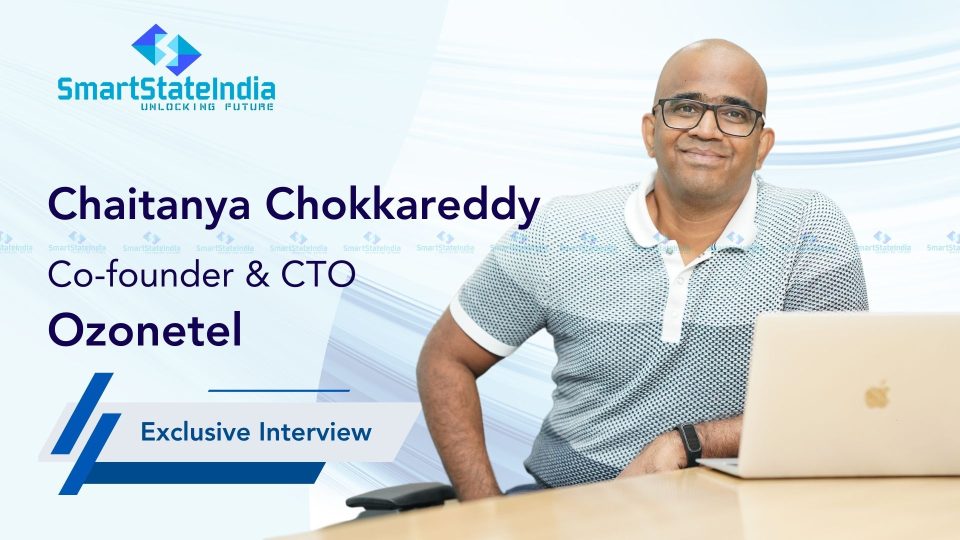In a standard contact center scenario, language options presented to customers are primarily English or Hindi. However, for individuals with a different primary language, communication becomes a hurdle. Frustrated and unable to articulate their concerns effectively, they conclude the interaction without any resolution. Language, in this instance, becomes a formidable barrier, negatively impacting a customer’s engagement with the company.
Recognizing this challenge, Ozonetel, a leader in customer experience solutions, has introduced a vernacular Large Language Model (LLM), beginning with Telugu. This innovative approach aims to eliminate language barriers in customer contact centers, ensuring that individuals can engage in their local languages, thereby enhancing and personalizing the overall customer experience.
Founded in 2007, Ozonetel embarked on a journey to bridge gaps in enterprise communications. Their early innovations included KOOKOO, India’s first Communications Platform as a Service (CPaaS), and CloudAgent, the country’s inaugural cloud contact center solution. Over the years, Ozonetel has evolved into a comprehensive AI-driven Customer Experience (CX) platform, facilitating over 7 billion voice and digital customer interactions annually.
In an exclusive interview, Mr. Chaitanya Chokkareddy, Co-founder and Chief Technology Officer at Ozonetel, shares insights into the company’s initiatives and the evolving landscape of customer experience in India.
What distinguishes Ozonetel in terms of customer experience solutions, specifically in addressing the challenges encountered by global customer contact centers?
Today customer experience leaders are bogged down by cumbersome vendor management and are dependent on third-party data for AI-based insights. The customer journey architecture is broken, and teams are unable to share the data they require to optimize conversations and effectively engage customers at critical touchpoints.
Ozonetel offers enterprises a unified, full-stack CX platform that makes it easy to orchestrate the customer journey across all communication channels and touchpoints. By offering a single platform to manage voice and digital interactions, it removes the need for cumbersome vendor management and boosts business agility. Our Open API platform offers unparalleled interoperability, enabling seamless sharing of relevant customer data across business applications. And our inbuilt AI enables organizations to derive business intelligence from every interaction.
Could you explain how Ozonetel’s vernacular LLM, powered by Gen AI, captures real-time intelligence from voice and digital interactions? Additionally, what languages are currently under development beyond Telugu?
Ozonetel’s AI solution captures real-time intelligence from both voice and digital interactions and focusses on four aspects: Automated Quality Audits for Contact Centers, Agent-facing Conversational Intelligence, Intelligent Neural Search, and Voice and Chatbots.
Our AI solution has two aspects: speech and voice analytics. The voice analytics is language-agnostic and analyses multilingual conversations on multiple parameters such as decibel levels, speaking rate, and participation ratio to generate automated scores for each call. This allows for quick evaluation of call quality and agent performance.
Our speech analytics solution supports Hindi, English, and Hinglish. We are collaborating with Swechha, Alpes and other educational institutes to help young innovators develop vernacular LLMs within India. Beyond Telegu, we are working on developing a Hindi LLM.
How do you foresee Ozonetel’s vernacular LLM, with its real-time understanding of customer conversations, positively impacting customer contact centers in India, given the diverse linguistic landscape?
An indigenous LLM developed in India is important for two reasons. Firstly, to support the wide variety of languages and dialects spoken within India. And secondly to comply with regulatory challenges. With large foundation models primarily hosted in the U.S., there are restrictions on data transfer that impact how we can leverage these AI models.
At Ozonetel, our aim in building foundational models within India is to ensure data compliance and security which would be essential for contact centres, especially those operating within the finance and banking verticals.
The positive impact of AI on contact centers will be to help them enable more efficient operations, faster resolutions, and more personalized responses. It will help business extract important business intelligence and significantly improve customer experience and business growth.
Can you provide an overview of Ozonetel’s roadmap for the year 2024, specifically highlighting any upcoming solutions or innovations in the customer experience space that the company is currently working on or planning to launch?
Our product roadmap is geared towards creating frictionless customer experiences across voice and digital channels. This includes seamlessly switching between voice and digital channels during a single conversation and across touchpoints within the customer journey.
Some innovations in the pipeline include no-code and AI-based solutions that help businesses effortlessly orchestrate customer journeys and related interactions. In 2024, we are also heavily focused on enabling businesses to derive business intelligence from customer interactions to improve engagement and drive growth.
Lastly, could you share insights on the latest emerging technologies and trends in the customer experience space that you observe becoming mainstream in 2024?
In 2024, the customer experience landscape is poised to evolve significantly, driven by several key trends. There will be a heightened emphasis on reducing friction within customer journeys, enabling hyper personalization, and intelligently integrating AI to transform customer experience and business insights.
Today, customer journeys are no longer linear but are multi-touch and multichannel. These omnichannel journeys necessitate a cohesive and integrated approach to customer communication, where brands leverage AI-powered chatbots and virtual assistants to provide instant support and personalized recommendations.
To ensure a frictionless customer experience, brands will need to unify their data and systems on the backend. Additionally, predictive analytics will play a crucial role, allowing brands to anticipate customer needs, tailor offerings, and optimize marketing efforts for maximum impact.
Amidst all the changes, the human touch will continue to remain invaluable, particularly in scenarios demanding empathy, complex problem-solving, or nuanced judgment. As brands embrace conversational interfaces, AI-driven solutions, and phygital experiences, customers can anticipate more tailored, seamless, and delightful interactions across the board.



